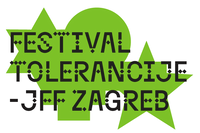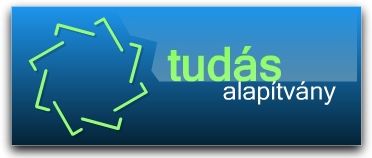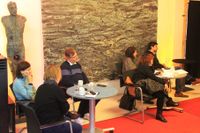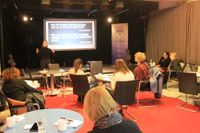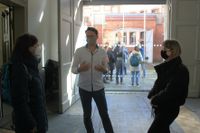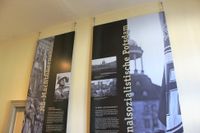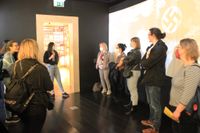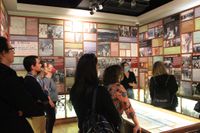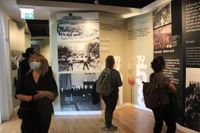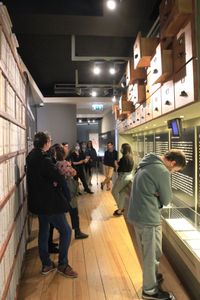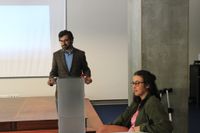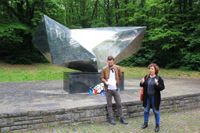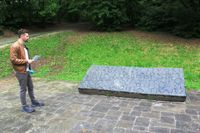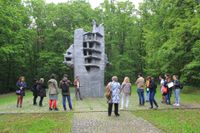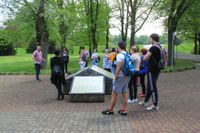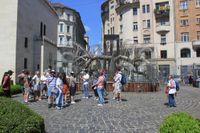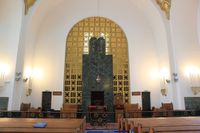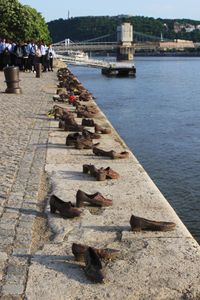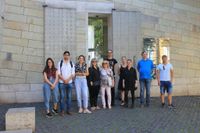om yesterday to today - How is history told?
The culture of remembrance of fascist regimes in Europe
March – May 2022
4 Workshops in 4 different countries
Join us to...
...deconstruct historic pictures and storytelling through exchange and discussion,
...visit historic memorials, libraries and museums,
...meet and question contemporary witnesses,
...analyse current political tendencies and today's "storytelling" within politics and society,
...and build bridges to a European sense of remembrance!
About the project
The project, "From Yesterday to Today - How is History Told? The culture of remembrance of fascist regimes in Europe" aims to approach the "storytelling" of different countries in relation to their fascist history, through mutual exchange and personal encounters.
European citizens from the four host countries will jointly analyse how stories about history are communicated, which images are drawn, which heroes are admired or idealised and which victims are mourned.
In participatory workshops, the specific "storytelling" of the host country is explored and discussed. The aim is to develop a comprehensive picture of the host country's "storytelling". Furthermore, this picture resulting from the "storytelling" will be analysed and deconstructed in joint discussions. The participants of the workshops can understand how history is told, how political and social memory takes place and how the country deals with its history.
In this way, bridges can be built to a common European culture of remembrance. History is an opportunity for citizens to engage with the present, to question today's political tendencies and the current "storytelling" in politics and society.
In order to promote international exchange, each organisation sends at least 4 people to the host country to participate in a two- to three-day workshop. Europeans from four countries meet in each country to examine that country's specific culture of memory. This creates a network of stories and a pan-European view of history. This should lead to a new view of Europe on its history, present and future.
You find our project partners here
Kick Off Meeting in Potsdam
At the beginning of the project, the project was launched with a kick-off meeting lasting 2 days. All participating countries came with 2 representatives each. The basic things were discussed. In addition, the key points and the expectations of the project were written down. In addition, quarterly consultations via Zoom were set up to enable continuous reporting.
Thus, at each meeting, a participating country was presented and their orientation as well as the planned activities. Meetings were held on 18.01.2021, 22.03.2021, 20.07.2021, 30.09.2021 and 30.11.2021. The meetings were intensified by the content planning of the workshops and their implementation in April 2022 and May 2022. 2 participants from the institutions in Portugal, Croatia, Hungary and Germany were always present at these meetings.
1. Workshop Potsdam
Program:
The project involved 32 citizens, in particular 23 participants from the city of Brandenburg an der Havel and Potsdam (Germany), 3 participants from the city of Lisboa (Portugal), 3 participants from the city of Zagreb (Croatia) and 3 participants from the city of Hódmezővásárhely (Hungary).
The event took place in Potsdam, Brandenburg an der Havel (Germany), from 15/03/2022 to 17/03/2022.
Short description:
Day 15/03/2022 was dedicated to: the international exchange of participants' knowledge or level of knowledge about the conference venue and their relation to the programme. As Potsdam is the first day of the programme, the first important stations were explained and also the programme "Europe for Citizens" was discussed and in particular the challenges for today.
Day 16/03/2022 was dedicated to the introduction to the seminar, getting to know all participants and their background. It is about understanding the respective culture and its historical context. This is the starting point for totalitarian history as a topic of political education in Germany. In the first programme item, this was discussed in detail and experiences were exchanged. A central starting point of the educational work for Potsdam is the biographies of people who were imprisoned for political or "racial" reasons in National Socialism, during the Soviet occupation and in the GDR in Lindenstraße. This biographical approach enables a low-threshold, empathetic approach and is reflected in all mediation formats. The personal perspective of a contemporary witness offers a special approach to history. Therefore, interviews were conducted with former prisoners of Lindenstraße 54/55 as well as with actors of the transition period 1989/90. To start the conversation, the contemporary witnesses introduced themselves and their biographies. The introduction formed the basis for the conversation, which led the participants into a dialogue. After this epochal impression, a speaker was invited who is responsible for memorial work in the administration. This created a platform where everyone could get rid of their questions and once again feel confronted with the programme item of the morning. Lively discussions and an exchange of experiences took place, which had a lasting effect. In addition to theory, there was also a focus on making history tangible, and therefore the memorial sites in Potsdam were explored. With this knowledge and experience, a joint dinner was initiated to continue the exchange. Many interesting conversations arose.
Day 17/03/2022 was thematically dedicated to Brandenburg an der Havel. The participants were welcomed in Potsdam at the beginning of the day and then the seminar day began with a joint trip to Brandenburg an der Havel. This was also an opportunity to exchange ideas and briefly reflect on yesterday's events. In Brandenburg, the group went on a guided tour of the permanent exhibition and the grounds of the memorial. This made it possible to get a comprehensive overview of the National Socialist euthanasia crimes at the T4 killing centre in Brandenburg an der Havel. The exhibition focuses on the ideological foundations of Nazi euthanasia, the biographies of the victims, those involved in the crimes, resistance and the legal prosecution of the perpetrators after 1945. To begin with, the exhibition documents the historical foundations of Nazi euthanasia and racial hygiene using propaganda posters and eugenic memoranda. In Brandenburg, the decision was made in January 1940 during a "test killing" to carry out mass murder with the help of gas. Statements by those involved, which are presented in a monitor, bear witness to this. Thematically, the exhibition dealt with the murders, the victims and their biographies. Furthermore, the exhibition emphasised the significance of the euthanasia killing centre as a place of systematic mass murder of Jewish prison patients. The largest group of those murdered in Brandenburg were people with various psychiatric illnesses and disabilities as well as social outsiders. Children from the nearby Görden asylum were killed for research purposes in the Brandenburg an der Havel gas murder asylum. A publication from 1948 presented in the exhibition shows how the research results were used after the end of the war. After returning to Potsdam, the time in Potsdam and Brandenburg was reflected on, a feedback session was held and the next workshop in Lisboa was also presented.
2. Workshop Lisaboa
Program:
The project involved 34 citizens, in particular 25 participants from the city of Lisboa (Portugal), 3 participants from the city of Potsdam (Germany), 3 participants from the city of Zagreb (Croatia) and 3 participants from the city of Hódmezővásárhely (Hungary).
The event took place in Lisboa (Portugal), from 23/04/2022 to 26/04/2022.
Brief description:
Day 23/04/2022: The partners' visit coincided with the anniversary of the Campo de Ourique Library and the opening of the exhibition on 25 April (a holiday celebrating the end of fascism). In this context, a concert of traditional Portuguese music was held, an opportunity to socialise and exchange cultural customs. At this time it was also possible for the partners to visit the exhibition on 25 April.
Day 24 April 2022: Visit to the Aljube Museum - Resistance and Freedom, a museum dedicated to the history and memory of the struggle against dictatorship and the recognition of resistance for freedom and democracy. The museum's permanent exhibition offers visitors a general characterisation of the Portuguese dictatorial regime (1926-1974), its means of repressing the population (through censorship and repressive measures by the police and political courts), the semi-legal and clandestine means of opposition, and aspects of the anti-colonial struggle that led the military to overthrow the regime in a military coup in 1974. On floor -1, visitors can still see part of the structures of the building that houses the museum, as well as an archaeological exhibition that has been lifted from underground.
https://www.museudoaljube.pt/en. Visit to the Campo de Ourique.
The Padaria do Povo is a cooperative founded in 1904 to produce cheaper bread for the community. Later it became a popular university where the country and the world were discussed. Today, the Padaria do Povo is a restaurant that maintains its status as a cooperative and its links to political and social movements, especially during the fascist revolution. Followed by a panel discussion that includes:
- Lecture on the history of the fascist regime in Portugal.
Video viewing about the regime.
- Presentation by the partners about the history of the fascist regime in their countries.
- Debate session: Freedom and Youth - Past, Present and Future
20h30 - Dinner at Casa do Alentejo
Typical restaurant in the 17th century Alverca Palace. A place of culture and good food in the cosmopolitan centre of Lisbon.
Day 25.04.2022: Peddy Paper in Lisbon Historical Tour: Walk through the streets of the Revolution
Visit to the Republican National Guard Museum - Quartel do Carmo and visit to the April 25th Parade in Liberty Avenue. Thousands of people took to the streets of Lisbon to celebrate the 48th anniversary of 25 April, for the first time since 2019 without masks and dissociation. As they walked along Avenida da Liberdade with carnations in their hands, on their chests, in their backpacks or as flag decorations, the song "Grândola Vila Morena" by Zeca Afonso was accompanied by the slogans "Peace yes, war no", which were repeated throughout the procession. Political parties, associations, organisations and all citizens who wish to do so participate in the parade. This empowered participants to critically engage with history and consequently question historical narratives. A modern approach was taken to the method of "history telling".
Day 26.04.2022: The paper carnations decorating the room were made by students from the kindergarten and 1st grade. Some of the students shared what freedom means to them with small messages they wrote on the carnations.
Some of the books that were banned during the fascist regime are displayed in the windows. Some are the original editions with the censorship stamp of the PIDE - International Police and State Protection (editions provided by the Lisbon Library Network).
- Interviews with elderly people from day centres in Campo de Ourique
Campo de Ourique has 3 day centres for older people. As the Parish Council works closely with these facilities, we asked them to allow us to interview some of their users who lived in Portugal during the 48 years of the dictatorship.
Three of the selected young people conducted these interviews with about 10 people, who were filmed and then included in a video about the fascist regime in Portugal.
- Discussion session
To explain the fascist regime in Portugal, one of the young and talented participants (Gil Costa) made a video with pictures and recordings from that period, excerpts from interviews with older people in the community and historical data about the regime.
The video is available at:
https://drive.google.com/file/d/1F3AwCJdBPvHMFvTAEICw18icDyLvhpEa/view
Debate Session: Freedom and Youth - Past, Present and FutureAs part of a roundtable discussion, we invited two young people who were politically active and two who had fought directly against the regime.
3. Workshop Zagreb
Programm:
The Zagreb Jewish Film Festival organised a workshop in Zagreb for international, local and national participants. The focus was on local historical memory culture of fascist regimes.
The workshop took place from 7 May to 9 May 2022 in Zagreb and its surroundings (Jasenovac, Sisačko- moslavačka County).
The total number of participants in the Zagreb programme was 34.
At the beginning of the preparations and in the run-up to the workshop, historical and thematic research was conducted. In this phase, we conducted interviews with experts (Daniel Rafaelić, film historian specialising in Nazi and Ustasha propaganda films, Saša Šimpraga, activist and historian, initiator of the Dotrščina Virtual Museum, Dunja Jakopović, curator at the Roma Memorial Center Uštica, Sanja Horvatinčić, art historian and researcher at the Institute of Art History Zagreb) who helped us design the workshop. Some of them participated in the workshop as lecturers.
The aim of the Zagreb workshop was to familiarise participants with the material traces of the memory of the local fascist regimes and to raise awareness of the consequences of these regimes today.
The Zagreb workshop included the following activities:
- Participatory observation and personal experience; visits to museums, national monuments, sites of World War II crimes.
- Lectures by expert historians Saša Šimpraga and Daniel Rafaelić.
- Guided tour of Holocaust remembrance sites in Zagreb by Antonija Tomičić, Centre for the Promotion of Tolerance and Holocaust Remembrance
- Meeting with the artist Dalibor Stošić, author and artist of the Monument to the Victims of the Holocaust and the Ustasha Regime in the centre of Zagreb, inaugurated on 27 Aprildeth 2022.
- Discussion on commemorative culture and historical revisionism (StanisÌaw Jerzy Lec: "If you destroy monuments, keep the pedestals, you will need them. ")
4. Workshop Hódmezővásárhely (Ungarn)
Program:
The workshop took place from 11 May to 12 May 2022 in Hódmezővásárhely and its surroundings (Hungary). The focus was on the local historical memory culture of fascist regimes. The project involved 13 citizens, in particular 4 participants from the town of Hódmezővásárhely
(Hungary), 3 participants from the city of Potsdam (Germany), 3 participants from the city of Zagreb (Croatia) and 3 participants from the city of Lisaboa (Portugal).
The total number of participants in the Hungarian programme was 26.
Brief description:
In addition to the information on the history and significant buildings, which are closely connected with the history, the historical narrative of the fascist regime in the past of Hungary was dealt with. Through the past events the perspectives were opened and with the last workshop the knowledge was completed.
Day 11.05.2022 started with a guided tour of the 4 synagogues in Dohany.
During this 90-minute tour, the participants gained an insight into the past of the Jewish quarter of the seventh district. With the help of the institution, the participants learn interesting facts about Jewish culture, the secrets of the Jewish quarter and visit the 4 most famous synagogues of Budapest.
Route: Dohány Street Synagogue - Kazinczy Street Synagogue - Gozsdu Courtyard - Madách Square - Rumbach Street Synagogue - Dohány Street Synagogue. The memory of the Holocaust is closely linked to the old Jewish quarter where the synagogue is located. Dohány Street formed the border to the ghetto during the Second World War. Nearly 2600 Jewish people who perished during the Holocaust are buried in the area, which was laid out as a garden. The synagogue can be visited on weekdays. It is closed on Saturdays and Jewish holidays.
The synagogue is still primarily a place of worship, but cultural events such as concerts also take place there. The House of Terror (museum) was visited afterwards. An important room is the Gulag and Soviet Forced Labour Camps Hall, which commemorates the Hungarians, both civilians and political prisoners, who were taken to Soviet forced labour camps. The spaciousness of the hall, the map covering the floor, the mementos and the wooden panelling on the walls highlight the hopeless fate of 700 000 Hungarians who lived in barracks and were imprisoned in the endless expanses of the Soviet Union. After the end of the war, contrary to initial hopes, neither democracy nor a market economy were introduced, but a new totalitarian dictatorship and an economic system contrary to common sense were created in Hungary. Participants took their seats in the screening room and watched contemporary propaganda films in full length. (Translator was on site)
Day 12.05.2022 included a visit to the Holocaust Memorial. The Holocaust is the horror of the entire Hungarian nation, causing immeasurable loss of life and spiritual values. The existence of the memorial in itself is a sign of the reverence of the government, the Hungarian nation and society towards all the victims of the Shoah, our persecuted and murdered innocent compatriots, respect for the righteous among the nations and every selfless saviour. The memorial is a place of collective remembrance and compassion for the victims, and at the same time a place of permanent and appropriate representation. Afterwards, an information event took place with the pupils of the local school, which was thematically related to the event. The results of the previous day were shared. This resulted in the increased number of participants. After the workshop, the Hungarian partners documented the results and compiled their findings and material from all countries. After the workshop, all the results were recorded on pinboards, posters and whiteboards. This is the basis for continuing the workshop with a year group of a secondary school. The aim was to expand knowledge. As this school was close to the event, the partner decided not to take the many pupils and organised the continuation of the workshop afterwards. In the session phase, the previously planned sessions now took place. The barcamp method does not provide for a fixed schedule, but 45 minutes per topic plus a 15-minute break between the sessions has become established. Several topics are always held in parallel. Each country visited had its own session. During this phase, small discussion groups also formed in the plenum outside the official session framework. This was desired and served the purpose of understanding them. Barcamps are not classic frontal conferences, because instead of a passive audience, every visitor should be able to become active in this format. Participants can become participants at any time and shape their own conference. New opinions and needs are discovered in an open exchange. The decisive factor here is that everyone has equal rights, and everyone is invited to propose a topic at the beginning.
Zusammenfassung
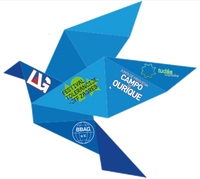
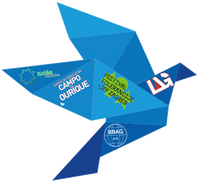
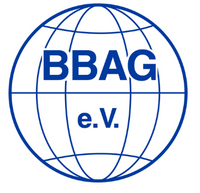
.png/picture-200?_=17d5bda9358)
